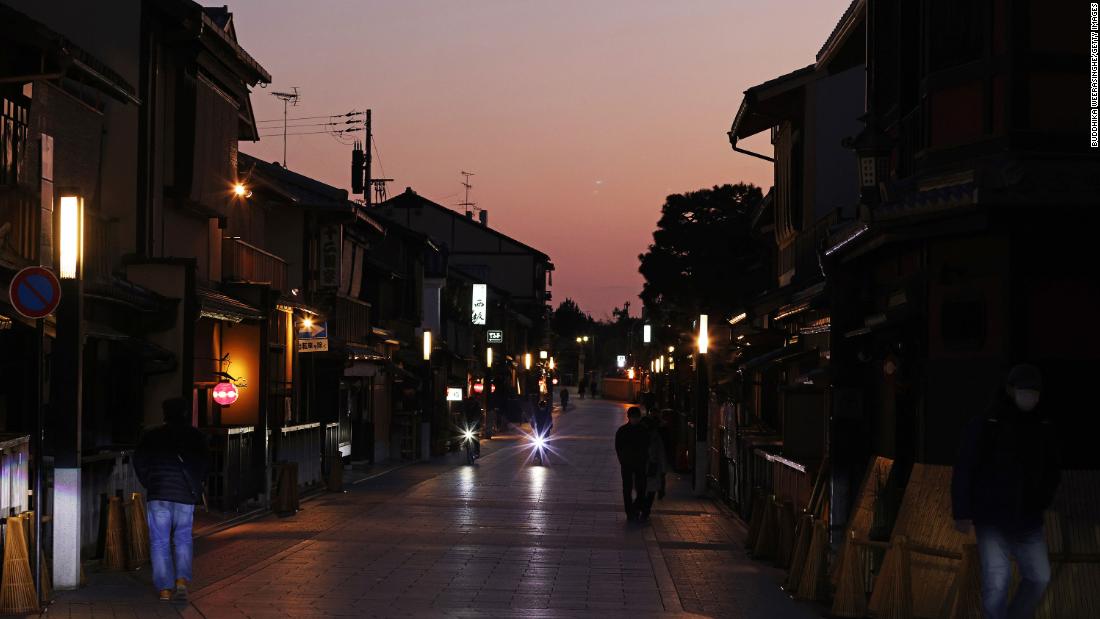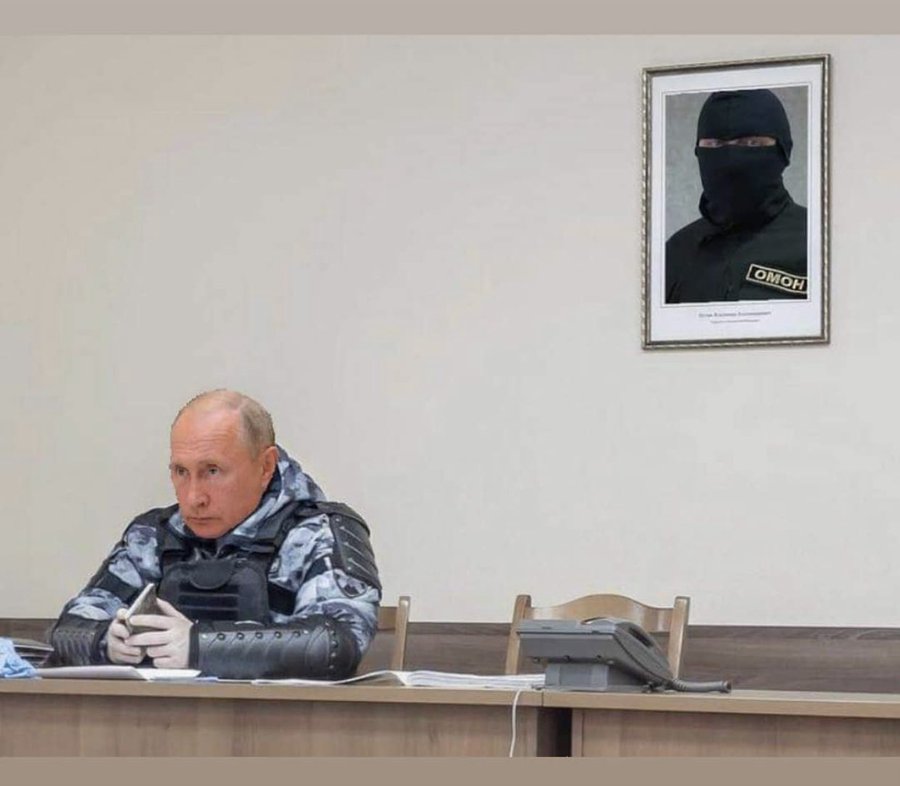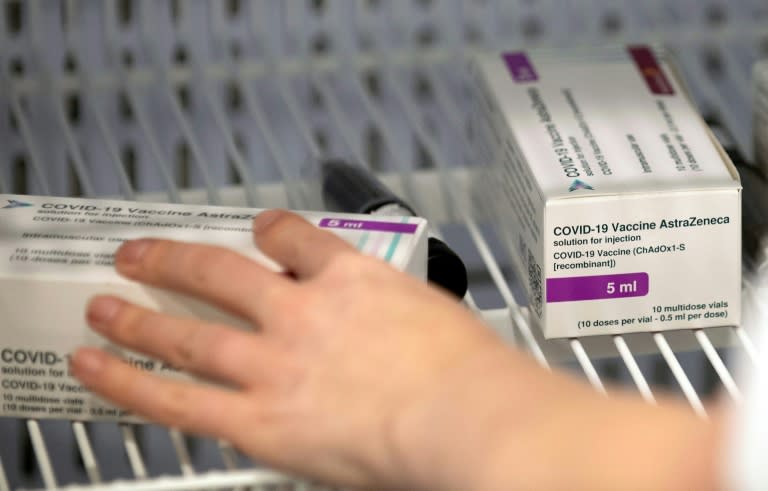The Pandemic Bulletin - 9:56 AM 2/2/2021: COVID-19: Surprising number of US healthcare workers refuse vaccines | Vaccine rollout hits snag as health workers balk at shots

- COVID-19 Vaccine: Will It Protect Against New Variants And Do You Need A 2nd Dose? NPR
- Moderna president details plans to ramp up COVID-19 vaccine production l GMA Good Morning America
- The top COVID news stories you missed in the past few days Popular Science
- These 'vaccine hunters' are getting their shots ahead of schedule by gaming the system CNN
- More Americans Have Received at Least 1 Covid Vaccine Dose Than Tested Positive Bloomberg
- View Full Coverage on Google News

From 100,000 cases a day in September, India is now down to about 10,000 a day. Is it climate? Demographics? Mask mandates? Scientists are looking for answers.
(Image credit: Sanchit Khanna/Hindustan Times via Getty Images)


- COVID-19 Vaccine: Will It Protect Against New Variants And Do You Need A 2nd Dose? NPR
- Moderna president details plans to ramp up COVID-19 vaccine production l GMA Good Morning America
- The top COVID news stories you missed in the past few days Popular Science
- These 'vaccine hunters' are getting their shots ahead of schedule by gaming the system CNN
- More Americans Have Received at Least 1 Covid Vaccine Dose Than Tested Positive Bloomberg
- View Full Coverage on Google News

From 100,000 cases a day in September, India is now down to about 10,000 a day. Is it climate? Demographics? Mask mandates? Scientists are looking for answers.
(Image credit: Sanchit Khanna/Hindustan Times via Getty Images)
The Pandemic Bulletin - 9:56 AM 2/2/2021
- Coronavirus: Fatigue over COVID-19 fueling growing acts of defiance Global News
- Dallas County reports 1,617 coronavirus cases, 12 deaths; Tarrant logs 36 fatalities, 1,888 cases The Dallas Morning News
- US COVID-19 cases, hospitalizations down for two straight weeks New York Post
- 'We crushed it': How did West Virginia become a national leader in Covid vaccination? NBC News
- COVID in Georgia: Jan. 31, 2021 11Alive
- View Full Coverage on Google News
- Questions surround AstraZeneca vaccine use for elderly Yahoo News
- Top E.U. Official Comes Under Fire in Vaccine Wars The New York Times
- E.U. boosts vaccine supply through two new deals with drugmakers; U.S. chides China on covid transparency The Washington Post
- Facebook's Nick Clegg on data privacy, European Union, Dopfner open letter - Business Insider Business Insider
- Covid: EU and AstraZeneca in 'step forward' on vaccines BBC News
- View Full Coverage on Google News
One million shots of coronavirus vaccine were flown into South Africa on Monday, where Cyril Ramaphosa's government has been criticized for not securing shots sooner
#News #Vaccine #COVID19 #Covid
Subscribe: http://smarturl.it/reuterssubscribe
Reuters brings you the latest business, finance and breaking news video from around the globe. Our reputation for accuracy and impartiality is unparalleled.
Get the latest news on: http://reuters.com/
Follow Reuters on Facebook: https://www.facebook.com/Reuters
Follow Reuters on Twitter: https://twitter.com/Reuters
Follow Reuters on Instagram: https://www.instagram.com/reuters/?hl=en
There have been 406 COVID-19 deaths and 18,607 new cases bringing the death total to 106,564.
SUBSCRIBE to our YouTube channel for more videos: http://www.youtube.com/skynews
Follow us on Twitter: https://twitter.com/skynews
Like us on Facebook: https://www.facebook.com/skynews
Follow us on Instagram: https://www.instagram.com/skynews
For more content go to http://news.sky.com and download our apps:
Apple: https://itunes.apple.com/gb/app/sky-news/id316391924?mt=8
Android https://play.google.com/store/apps/details?id=com.bskyb.skynews.android&hl=en_GB
Sky News videos are now available in Spanish here/Los video de Sky News están disponibles en español aquí https://www.youtube.com/channel/UCzG5BnqHO8oNlrPDW9CYJog
The head of the Centers for Disease Control and Prevention says new COVID-19 cases and hospitalizations are down in recent weeks, but three mutations that are causing concern have been detected in the U.S. (Feb. 1)
Subscribe for more Breaking News: http://smarturl.it/AssociatedPress
Website: https://apnews.com
Twitter: https://twitter.com/AP
Facebook: https://facebook.com/APNews
Google+: https://plus.google.com/115892241801867723374
Instagram: https://www.instagram.com/APNews/
You can license this story through AP Archive: http://www.aparchive.com/metadata/youtube/2d06009969b64131a437292b0fd64e3d

On an unusually dreary Johannesburg day, a figurative ray of sunshine: the arrival of the first pallets of coronavirus vaccines that will, in about two weeks, begin making their way into the arms of South Africans.
President Cyril Ramaphosa and other dignitaries stood on the tarmac, masked and under dark umbrellas in the driving rain, as the Emirates flight carrying the first vaccine shipment landed at Johannesburg’s OR Tambo International Airport Monday afternoon. This shipment of the AstraZeneca vaccine was purchased from an Indian manufacturer, officials said.
Ramaphosa did not speak to the public, but in a statement, said, “The scale of delivery is unprecedented in terms of the number of people who have to be reached within a short space of time.”
Family members and volunteers from the Saaberie Chishty Society lower the body of a COVID-19 victim into a grave at the Avalon cemetery in Lenasia, South Africa, Jan. 4, 2021.The first vaccines, he said, will go to 1.2 million front-line health workers.
South Africa is the continent’s viral hotspot, with 1.4 million confirmed cases since the virus turned up in the country in March. The nation experienced the start of a second wave -- featuring a new variant that is significantly more contagious -- in late December, but the peak of that wave appears to be subsiding. Current vaccines are expected to work on the South African variant, called 501.V2, said the head of the nation’s coronavirus task force, Dr. Salim Abdool Karim.
The rest of the continent is awaiting shipment of about 300 million vaccines. South Africa will now become the fifth African nation to roll out vaccinations, after Morocco, Egypt, the Seychelles and Guinea.
Ramaphosa is expected to address the nation late Monday about its continuing coronavirus precautions and restrictions.
The U.S. is speeding up vaccination efforts as more contagious coronavirus variants are detected in more than 30 states. CBS News correspondent Jonathan Vigliotti reports from Los Angeles, and Dr. Teresa Amato, the director of emergency medicine at Long Island Jewish Forest Hills, joins CBSN with more on how to get ahead of this growing threat.
CBSN is CBS News’ 24/7 digital streaming news service featuring live, anchored coverage available for free across all platforms. Launched in November 2014, the service is a premier destination for breaking news and original storytelling from the deep bench of CBS News correspondents and reporters. CBSN features the top stories of the day as well as deep dives into key issues facing the nation and the world. CBSN has also expanded to launch local news streaming services in major markets across the country. CBSN is currently available on CBSNews.com and the CBS News app across more than 20 platforms, as well as the CBS All Access subscription service.
Subscribe to the CBS News YouTube channel: http://youtube.com/cbsnews
Watch CBSN live: http://cbsn.ws/1PlLpZ7c
Download the CBS News app: http://cbsn.ws/1Xb1WC8
Follow CBS News on Instagram: https://www.instagram.com/cbsnews/
Like CBS News on Facebook: http://facebook.com/cbsnews
Follow CBS News on Twitter: http://twitter.com/cbsnews
Subscribe to our newsletters: http://cbsn.ws/1RqHw7T
Get new episodes of shows you love across devices the next day, stream CBSN and local news live, and watch full seasons of CBS fan favorites like Star Trek Discovery anytime, anywhere with CBS All Access. Try it free: http://bit.ly/1OQA29B
• Your neighborhood pharmacist can help speed the vaccine rollout


From 100,000 cases a day in September, India is now down to about 10,000 a day. Is it climate? Demographics? Mask mandates? Scientists are looking for answers.
(Image credit: Sanchit Khanna/Hindustan Times via Getty Images)
MEDIA ADVISORY
Paper title: SARS-CoV-2 seropositivity and subsequent infection risk in healthy young adults: a prospective cohort study
Corresponding Author: Stuart C. Sealfon, MD, Professor of Neurology, Neuroscience and Pharmacological Sciences, Icahn School of Medicine at Mount Sinai
Bottom Line: Although antibodies induced by infection to SARS-CoV-2 are largely protective, they do not guarantee effective immunity against subsequent infection, as evidenced through a longitudinal, prospective study of young Marine recruits. Previously infected study participants identified by seropositivity are susceptible to repeat infection, with nearly one-fifth the incidence rate of those without evidence of previous infection. Among the seropositive group, those who became infected again had lower antibody titers than those that were uninfected, and most lacked detectable baseline neutralizing antibodies. Findings suggest that COVID-19 vaccination may be necessary for control of the pandemic in previously infected young adults.
Results: Among 189 seropositive participants, 19 (10.1%) had at least one positive PCR test for SARS-CoV-2 during the six-week follow-up. In contrast, 1,079 (48.0%) of the 2,246 seronegative participants tested positive. The incidence rate ratio was 0.18 (95% CI 0.11-0.28, p<0.00001). Among seropositive recruits, infection was associated with lower baseline full-length protein IgG titers (p=<0.0001). Compared with seronegative recruits, seropositive recruits had about 10-fold lower viral loads and trended towards shorter duration of PCR positivity (p=0.18) and more asymptomatic infections (p=0.13). Among seropositive participants, baseline neutralizing titers were detected in 45 of 54 (83.3%) uninfected and in 6of 19 (31.6%) infected participants during the 6 weeks of observation.
Why the Research Is Interesting: With the onset of mass SARS-CoV-2 vaccination programs and the increasing proportion of previously infected individuals, the risk of reinfection after natural infection is an important question for modeling the pandemic, estimating herd immunity, and guiding vaccination strategies. And since young adults, of whom a high percentage are asymptomatically infected and become seropositive in the absence of known infection, can therefore be a source of transmission to more vulnerable populations, it’s important to evaluate protection against subsequent SARS-CoV-2 infection conferred by seropositivity to determine the need for vaccinating previously infected individuals in this age group.
Who: Scientists from the Icahn School of Medicine at Mount Sinai, in collaboration with researchers from the Naval Medical Research Center, utilized the COVID-19 Health Action Response for Marines (CHARM) study, a longitudinal, prospective cohort study that has been previously described and published in NEJM, to examine how protective detectable antibodies are to preventing subsequent infections with SARS-CoV-2, the virus that causes COVID-19. The study population consisted of 3,249 predominantly male, 18-20-year-old Marine recruits who, upon arrival at a Marine-supervised two-week quarantine prior to entering basic training, were assessed for baseline SARS-CoV-2 IgG seropositivity (defined as a 1:150 dilution or greater on receptor binding domain and full-length spike protein enzyme-linked immunosorbent [ELISA] assays.) The presence of SARS-CoV-2 was assessed by PCR at initiation, middle and end of quarantine. After appropriate exclusions, including participants with a positive PCR during quarantine, the study team performed three bi-weekly PCR tests in both seronegative and seropositive groups once recruits left quarantine and entered basic training.
When: All study data was collected between May and October, 2020. The prospective study observation period began when Marine recruits arrived at Marine Corps Recruit Depot – Parris Island (MCRDPI) to commence basic training.
What: The study evaluated protection against subsequent SARS-CoV-2 infection conferred by seropositivity in young adults to determine the need for vaccinating previously infected individuals in this age group.
How: After appropriate exclusions, including participants with a positive PCR during quarantine, the study team performed three biweekly PCR tests in both seropositive and in seronegative groups once recruits left quarantine and entered basic training and baseline neutralizing antibody titers on all subsequently infected seropositive and selected seropositive uninfected participants.
Study Conclusions: Seropositive young adults had about one-fifth the risk of subsequent infection compared with seronegative individuals. Although antibodies inducted by initial infection are largely protective, they do not guarantee effective SARS-CoV-2 neutralization activity or immunity against subsequent infection. These findings may be relevant for optimization of mass vaccination strategies.
Funding: Defense Health Agency and Defense Advanced Research Projects Agency (DARPA)
Said Mount Sinai's Dr. Stuart Sealfon of this work: "Our findings indicate that reinfection by SARS-CoV-2 in healthy young adults is common."
###
FOR IMMEDIATE RELEASE: Posted January 29, 2021 on MedRxiv
Coronavirus: 80 cases of South African variant discovered in Israel jpost.com/breaking-news/…
mikenov on Twitter
5:19 PM 2/1/2021 – New study finds reinfection by SARS-CoV-2 in healthy young adults is common thenewsandtimes.blogspot.com/2021/02/519-pm… pic.twitter.com/mUBv9HlIdI

mikenov on Twitter
4:13 PM 2/1/2021
M.N.: My hypothesis and explanation:
1. Sars-Cov-2 was present in India, just like everywhere else, for quite some time, probably for decades if not longer. It was and is largely asymptomatic, and the populace developed the adequate immunity to it:
Quote:
Serological surveys – random testing for antibodies – show a majority of people in certain areas of India may have already been exposed to the coronavirus, without developing symptoms. Last week, preliminary findings from a fifth serological study of 28,000 people in India’s capital showed that 56% of residents already have antibodies, though a final report has not yet been published. The numbers were higher in more crowded areas. Last summer, another survey by Mumbai’s health department and a government think tank found that 57% of Mumbai slum-dwellers, and 16% of people in other areas, had antibodies suggesting prior exposure to the coronavirus.
2. Bacteria and viruses compete with each other.
Quotes:
“All of us have pretty good immunity! Look at the average Indian: He or she has probably had malaria at some point in his life, or typhoid or dengue,” says Sayli Udas-Mankikar, an urban policy expert at the Observer Research Foundation in Mumbai. “You end up with basic immunity toward grave diseases.”
…
“COVID-19 deaths are lower in countries where people are exposed to a diverse range of microbes and bacteria.”
–
3. It is doubtful that masks make any difference.
Masks make no difference in Covid-19 transmission
______________________________
The Mystery Of India’s Plummeting COVID-19 Cases
February 1, 20213:29 PM ET

A mural in New Delhi is part of public health messaging in India. The country has seen a dramatic decline in new cases since fall, but researchers aren’t sure why. Sanchit Khanna/Hindustan Times via Getty Images hide caption
toggle caption
Sanchit Khanna/Hindustan Times via Getty Images
A mural in New Delhi is part of public health messaging in India. The country has seen a dramatic decline in new cases since fall, but researchers aren’t sure why.
Sanchit Khanna/Hindustan Times via Getty Images
Last September, India was confirming nearly 100,000 new coronavirus cases a day. It was on track to overtake the United States to become the country with the highest reported COVID-19 caseload in the world. Hospitals were full. The Indian economy nosedived into an unprecedented recession.
But four months later, India’s coronavirus numbers have plummeted. Late last month, on Jan. 26, the country’s Health Ministry confirmed a record low of about 9,100 new cases – in a country of nearly 1.4 billion people. It was India’s lowest daily tally in eight months. On Monday, India confirmed about 11,000 cases.
“It’s not that India is testing less, or things are going underreported,” says Jishnu Das, a health economist at Georgetown University. “It’s been rising, rising — and now suddenly, it’s vanished! I mean, hospital ICU utilization has gone down. Every indicator says the numbers are down.”
Scientists say it’s a mystery. They’re probing why India’s coronavirus numbers have declined so dramatically – and so suddenly, in September and October, months before any vaccinations began.
They’re trying to figure out what Indians may be doing right, and how to mimic that in other countries that are still suffering.
“It’s the million-dollar question. Obviously, the classic public health measures are working: Testing has increased, people are going to hospitals earlier, and deaths have dropped,” says Genevie Fernandes, a public health researcher with the Global Health Governance Program at the University of Edinburgh. “But it’s really still a mystery. It’s very easy to get complacent, especially because many parts of the world are going through second and third waves. We need to be on our guard.”
Scholars are examining India’s mask mandates and public compliance, as well as climate, demographics and patterns of diseases that typically circulate in the country.
Mask and mandates
India is one of several countries – mostly in Asia, Africa and South America – which have mandated masks in public spaces. Prime Minister Narendra Modi appeared on TV wearing a mask very early in the pandemic. The messaging was clear.
In many Indian municipalities, including the megacity Mumbai, police hand out tickets – fines of 200 rupees ($2.75) – to violators. Mumbai’s mask mandate even applies outdoors, to joggers on the beach and passengers in open-air rickshaws.
“Every time they fine a person 200 rupees, they also give them a mask to wear,” explains Fernandes, a Mumbai native. “Very stereotypically, we [Indians] are known to break rules! You see traffic rules being broken all the time,” she says, laughing.
But in the pandemic, when it comes to masks, “the police, the monitoring, enforcement – all that was ramped up,” she says.
Authorities reportedly collected the equivalent of $37,000 in mask fines in Mumbai on New Year’s Eve alone.
But the fines and mandates appear to have worked: In a survey published in July, 95% of respondents said they wore a mask the last time they went out. The survey was conducted by phone in June by the National Council of Applied Economic Research (NCAER), India’s biggest independent economic policy group.
Awareness is widespread. Whenever you make a phone call in India — on landlines and mobiles — instead of a ringtone, you hear government-sponsored messages warning you to wash your hands and wear a mask. One message was recorded by Bollywood legend Amitabh Bachchan, 78, who battled and recovered from COVID last summer.
The mask and hand-washing messages have now been replaced with new ones urging people to get vaccinated; India began vaccinations on Jan. 16.
Heat and humidity
Aside from mask compliance, there’s also India’s climate: Most of the country is hot and humid. That too has deepened the mystery. There’s some evidence India’s climate may help reduce the spread of respiratory viruses. But there’s also some evidence to the contrary.
A review of hundreds of scientific articles, published in September in the journal Plos One, found that warm and wet climates seem to reduce the spread of COVID-19. Heat and humidity combine to render coronaviruses less active – though the certainty of that conclusion, the review says, is low. Previous research has also found that droplets of the virus may stay afloat longer in air that’s cold and dry.
“When the air is humid and warm, [the droplets] fall to the ground more quickly, and it makes transmission harder,” Elizabeth McGraw, director of the Center for Infectious Disease Dynamics at Penn State, told NPR last year. (Although the science of transmission is still evolving.)
In a survey of COVID cases in India’s Punjab state, Das, the health economist at Georgetown, found that 76% of patients there did not infect a single other person – though it’s unclear why. He and his colleagues examined data collected from contact tracing, and found that most patients infected only a few other people, while a few patients infected many. Overall, 10% of cases accounted for 80% of infections. One implication, which Das says he’s investigating further, is the possibility of making contact tracing more efficient by first testing a patient’s immediate family members. If no one at all is infected, the process can end there.
“The temperature, of course, is in our favor. We do not have too cold of a climate,” says Dr. Daksha Shah, an epidemiologist and deputy executive health officer for the city of Mumbai. “So many viruses are known to multiply more in colder regions.”
But there’s also some scientific evidence to the contrary, that India might actually be more conducive to the coronavirus: Research published in December in the journal GeoHealth says that urban India’s severe air pollution might exacerbate COVID-19. Not only does pollution weaken the body’s immune system, but when air is thick with pollutants, those particles may help buoy the virus, allowing it to stay airborne longer.
A paper published in July in The Lancet says extreme heat may also force people indoors, into air-conditioned spaces – and thus might contribute to the virus’ spread. The National Resources Defense Council has warned that extreme heat can lead to a spike in other illnesses – dehydration, diarrhea – that might lead to overcrowding in hospitals and clinics already struggling to treat victims of COVID-19.
Prevalence Of Other Diseases
Another point to consider about India is how many other diseases are already rampant: Malaria, dengue fever, typhoid, hepatitis, cholera. Millions of Indians also lack access to clean drinking water, sanitation and hygienic food. Some experts speculate that people with robust immune systems may be more likely to survive in India in the first place.
“All of us have pretty good immunity! Look at the average Indian: He or she has probably had malaria at some point in his life, or typhoid or dengue,” says Sayli Udas-Mankikar, an urban policy expert at the Observer Research Foundation in Mumbai. “You end up with basic immunity toward grave diseases.”
Two new scientific papers support that thesis, though they have yet to be peer-reviewed: One study by Indian scientists from Chennai and Pune, published in October, found that low and lower-middle income countries with less access to health-care facilities, hygiene and sanitation actually have lower numbers of COVID-19 deaths per capita. Another study by scientists at India’s Dr. Rajendra Prasad Government Medical College, published in August, found that COVID-19 deaths are lower in countries where people are exposed to a diverse range of microbes and bacteria.
But experts warn these two studies are preliminary, and should only serve as a springboard for more investigation.
“They’re not based on any biological data. So they’re good for generating a hypothesis, but now we really need to do the studies that will result in explanations,” says Dr. Gangandeep Kang, an infectious diseases researcher at the Christian Medical College in Vellore, India. “I hope scientists work more on this soon. We need deeper dives into India’s immune responses.”
According to Health Ministry figures, the coronavirus has killed 154,392 people in India as of Feb. 1. That’s a mortality rate of 1.44-percent — much lower than that of the United States or many European countries. (But Brazil’s death rate is higher than India’s, and Brazil and India are both lower-middle income countries.)
Demographics
India is a very young country as well. Only 6% of Indians are older than 65. More than half the population is under 25. Those who are young are less likely to die of COVID, and more likely to show no symptoms if infected.
A study of nearly 85,000 coronavirus cases in India, published in November in the journal Science, found that the COVID mortality rate actually decreases here after age 65 – possibly because Indians who live past that age are such outliers. There are so few of them.
“Those Indians who do live that long tend to be more healthy than average, or more wealthy — or both,” says health economist Das.
Serological surveys – random testing for antibodies – show a majority of people in certain areas of India may have already been exposed to the coronavirus, without developing symptoms. Last week, preliminary findings from a fifth serological study of 28,000 people in India’s capital showed that 56% of residents already have antibodies, though a final report has not yet been published. The numbers were higher in more crowded areas. Last summer, another survey by Mumbai’s health department and a government think tank found that 57% of Mumbai slum-dwellers, and 16% of people in other areas, had antibodies suggesting prior exposure to the coronavirus.
But many experts caution that herd immunity – a controversial term, they say – would only begin to be achieved if at least 60% to 80% of the population had antibodies. It’s also unclear whether antibodies convey lasting immunity or for how long. More serological surveys are needed, they say.
TIMING
India’s climate and demographics have not changed during the pandemic. And the drop in India’s COVID-19 caseload has been recent. It hit a peak in September and has declined inexplicably since then.
In fact, India’s numbers went down exactly when experts predicted they would spike: In October, when millions of people gathered for the Hindu festivals of Diwali and Durga Puja. It’s when air pollution is also worst, and experts feared that would exacerbate the pandemic too.
Cases have also declined despite what many thought would be a super-spreader event: Tens of thousands of Indian farmers camping out on the capital’s outskirts for months.
Shah, the epidemiologist, wonders if, just like more infectious variants of the coronavirus have been discovered in the U.K. and elsewhere, perhaps a milder variant may have started mutating in India.
“Some processes must have happened. This is an evolution of the virus itself. In some places there are mutations happening,” she says. “We need some more, deeper evidence and deeper studies.”
The truth is, scientists just don’t know.
“Three options: One is that it’s gone because of the way people behaved, so we need to continue that behavior. Or, it’s gone because it’s gone and it’s never going to come back, great!” says Das, from Georgetown. “Or, it’s gone, but we don’t know why it’s gone — and it may come back.”
That last option is what keeps scientists and public health experts up at night.
So for now, Indians are kind of holding their breath – just doing what they’re doing — until they get vaccinated.
Dr. Rochelle Walensky, the new head of the Centers for Disease Control and Prevention and the former infectious disease chief at Mass. General Hospital, said Friday that it is likely the United States is experiencing community spread of the COVID-19 virus variant that was first discovered in South Africa.
The first two cases of the variant were diagnosed in South Carolina on Thursday.
“What’s happened over the last week or so is that we’ve really scaled up the surveillance and the sequencing in this country,” Walensky said on the “Today” show. “And I think we were always concerned that we had it here and we hadn’t yet detected it. And now we have evidence of these two cases in South Carolina that it is in fact here.”
South Carolina officials said the two individuals who contracted the variant lived in different parts of the state, do not appear to be connected, and neither had traveled recently. Those facts are what Walensky said was “concerning” about the cases.
“The presumption at this point is that there has been community spread of this strain,” she said.
The variant first detected in South Africa is not the only strain of the virus that has emerged in the United States in recent weeks. The first U.S. case of the variant initially detected in Brazil was diagnosed in Minnesota earlier this week, and the CDC has reported at least 315 U.S. cases of the variant that was discovered in the United Kingdom.
Two cases of the U.K. variant have been detected in Massachusetts.
“Today” host Savannah Guthrie asked Walensky how concerned she was about the mutating viruses presenting diminishing returns for how effective the COVID-19 vaccines will be.
The former MGH chief said more data on how different vaccines are faring against the variants is needed.
“That has always been our concern,” Walensky said. “When viruses mutate and they develop strains and dominant strains, they usually do so for some advantage to the virus. That may come in the tune of our vaccines not working as well. That said, I also want to note that we never expected a vaccine as efficacious as the Moderna and Pfizer [vaccines] at 95 percent efficacy. And I would say even a vaccine that has 50, 60 percent efficacy would still be a real tool in our toolbox to fight this pandemic.
“Furthermore, I know that these mRNA vaccines have the capacity to use and to engineer the mRNA, so it would be more potent against these strains,” she added. “And that work is already actually ongoing, so it may just lend us to feel like we need a booster effect further down the road. So all of that science is ongoing in anticipation.”
In addition to discussing the virus variants, Walensky weighed in on school reopenings, saying that teachers “should be early in queue” for vaccinations and getting shots in the coming weeks.
She also spoke about masks, saying the CDC recommends people use a multilayer cloth mask, procedure mask, or medical mask.
Her comments came as other health experts have pressed for a national plan to get everyone access to high-filtration masks, like N95s, to help stop the spread of COVID-19.
“Fifty-nine percent of Americans are wearing a mask right now … certainly N95s offer the best filtration, but in fact, they’re very hard to tolerate for long periods of time,” the CDC director said. “And I think the difference between a two-layer cloth mask and an N95 mask is relatively small compared to the difference of getting 41 percent of the American population masked.”
Information from the Associated Press was used in this report.
Sign up and receive coronavirus news and breaking updates, from our newsroom to your inbox.
–
–
The United Kingdom detected the South African variant of coronavirus among 11 people with no history of travel to the regions where the variant is currently circulating.
Owing to this discovery, mass testing is underway in the infected region. On Monday, the government announced that all infected people were self-isolating and that authorities had undertaken contact tracing to limit further transmission of the virus.
The authorities are undertaking testing across three different regions in the UK London, south-east, West Midlands, eastern England, and the North West. “Surge testing” would be undertaken, implying people with no symptoms will also be tested for the new variant to limit the spread.
“Every person over 16 living in these locations is strongly encouraged to take a Covid test this week, whether they are showing symptoms or not,” the government announced in a statement.
Also read: As virus variants spread, ‘no one is safe until everyone is safe’
In January, the government detected cases of the Brazilian and South African variants, but these cases were linked to travel. Since December 22, 105 cases of the South African variant have been identified in the country.
It is normal for viruses to mutate, and the same holds true for coronavirus. A variant was discovered first in the UK, which is thought not only to be more transmissible, but also more fatal.
While the world rushes to vaccinate its citizens, this has triggered fears of the vaccines not being effective enough. The South African variant seems to be more transmissible, but with no evidence of it being more severe.
Also read: Fauci says UK coronavirus variant to become more dominant in US by March
Laboratory tests, however, have shown that the new variant reduces the efficacy of vaccines.
Studies undertaken for two coronavirus vaccines developed by Novavax and Johnson & Johnson showed that the vaccines had less ability to protect against sickness brought on by the South African variant.
The News And Times
Blogs from Michael_Novakhov (30 sites)
 image/jpeg 210202013124-fauci-cnn-0201-hp-video.jpg
image/jpeg 210202013124-fauci-cnn-0201-hp-video.jpg
- COVID-19 Vaccine: Will It Protect Against New Variants And Do You Need A 2nd Dose? NPR
- Moderna president details plans to ramp up COVID-19 vaccine production l GMA Good Morning America
- The top COVID news stories you missed in the past few days Popular Science
- These 'vaccine hunters' are getting their shots ahead of schedule by gaming the system CNN
- More Americans Have Received at Least 1 Covid Vaccine Dose Than Tested Positive Bloomberg
- View Full Coverage on Google News

- Japan plans to extend its state of emergency as Covid-19 cases rise and Olympics loom CNN
- Japan Set to Extend State of Emergency for Another Month U.S. News & World Report
- Japan extends emergency amid vaccine, Olympic uncertainty Associated Press
- Japan concerned over EU COVID-19 vaccine supply uncertainty Washington Post
- Japan Set to Extend Covid Emergency as Economy Sputters Bloomberg
- View Full Coverage on Google News
dni.gov/files/NCSC/doc…
yahoo.com/news/pentagon-…
A mutation of the Kent coronavirus variant that is better able to evade the immune system has been detected.
Public Health England explained that it's called E484K and is also found in the spike protein of the South African variant.
Read more here:
https://news.sky.com/story/covid-19-mutation-of-kent-variant-detected-in-samples-could-help-virus-evade-immune-system-12206375
SUBSCRIBE to our YouTube channel for more videos: http://www.youtube.com/skynews
Follow us on Twitter: https://twitter.com/skynews
Like us on Facebook: https://www.facebook.com/skynews
Follow us on Instagram: https://www.instagram.com/skynews
For more content go to http://news.sky.com and download our apps:
Apple: https://itunes.apple.com/gb/app/sky-news/id316391924?mt=8
Android https://play.google.com/store/apps/details?id=com.bskyb.skynews.android&hl=en_GB
Sky News videos are now available in Spanish here/Los video de Sky News están disponibles en español aquí https://www.youtube.com/channel/skynewsespanol
Sen. Susan Collins spoke on behalf of a group of 10 Republicans who met with President Biden and Vice President Harris to discuss further Covid-19 relief and called the meeting a “good exchange of views.”
» Subscribe to NBC News: http://nbcnews.to/SubscribeToNBC
» Watch more NBC video: http://bit.ly/MoreNBCNews
NBC News Digital is a collection of innovative and powerful news brands that deliver compelling, diverse and engaging news stories. NBC News Digital features NBCNews.com, MSNBC.com, TODAY.com, Nightly News, Meet the Press, Dateline, and the existing apps and digital extensions of these respective properties. We deliver the best in breaking news, live video coverage, original journalism and segments from your favorite NBC News Shows.
Connect with NBC News Online!
NBC News App: https://apps.nbcnews.com/mobile
Breaking News Alerts: https://link.nbcnews.com/join/5cj/breaking-news-signup?cid=sm_npd_nn_yt_bn-clip_190621
Visit NBCNews.Com: http://nbcnews.to/ReadNBC
Find NBC News on Facebook: http://nbcnews.to/LikeNBC
Follow NBC News on Twitter: http://nbcnews.to/FollowNBC
Follow NBC News on Instagram: http://nbcnews.to/InstaNBC
#Biden #Covid #NBCNews
Republicans Say Covid Meeting With Biden ‘Productive’ | NBC News NOW



































Comments
Post a Comment